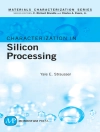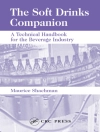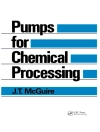Economic needs as well as ecological demands are major driving forces in improving chemical processes and plants. To meet these goals processes have to be intensified in order to get products of higher quality, to increase yield by reducing or even suppressing by-products and to minimise energy consumption. A preferred principle for such intensifications is process – tegration, especially integration of reaction and separation operations. S- entific research in this field has been boosted by certain extremely succe- ful examples like the Eastman-Kodak process for methyl acetate or the MTBE process which are milestones for this method. In 2002 the German Research Foundation defined process integration as one of the major – search topics for the next decade. In 1998 the Department of Biochemical- and Chemical Engineering at the University of Dortmund decided to pool its activities for concerted – forts in process integration and to form a joint research cluster. Our interest was to find out the general challenges as well as obstacles of integrated processes and to work out methods for their design and valuation. Soon it became clear that theoretical work only cannot give reasonable answers.
Inhoudsopgave
Synthesis of reactive separation processes.- Catalytic distillation.- Reactive gas adsorption.- Reactive liquid chromatography.- Reactive extraction.- Optimization and control of reactive chromatographic processes.- Controlling reactive distillation.- Multifunctionality at particle level — Studies for adsorptive catalysts.
Over de auteur
Professor Dr.-Ing. Schmidt-Traub studied Chemical Engineering, first in Braunschweig then in Berlin, where he got his Ph D and habilitation from the Technical University. He worked in leading positions in engineering for Krupp Koppers for 15 years. From 1989 to 2005 he held the chair of Plant Design at the University of Dortmund. He chaired Dechema as well as GVC working groups like ‘Computer Applications in Chemical Engineering’, ‘Process and Plant Design’ and ‘Computer-aided Plant Engineering’. He was speaker of the Research Group ‘ Integrated Reaction and Separation Operations’ by Deutsche Forschungsgemeinschaft (DFG). His main research activities are preparative chromatography, down stream processing, process design and plant engineering.
Professor Górak graduated from Technical University of Lodz, Poland, where he also got his Ph D before he joined Henkel k Ga A in Düsseldorf as senior researcher. In 1992 he has got his ‘venia legendi’ from RWTH Aachen and was appointed for Professor at Dortmund University. In 1996 he became Chair of Fluid Separations at University Essen and four years later at Dortmund University and is also Professor at the Technical University of Lodz, Poland. He is chairman of several German Working Parties on Fluid Separation and Process Simulation, editor for a leading Journal and has published about 150 referred papers and book chapters. His scientific interests are reactive and bioreactive separation processes, process intensification, computer aided process engineering.












